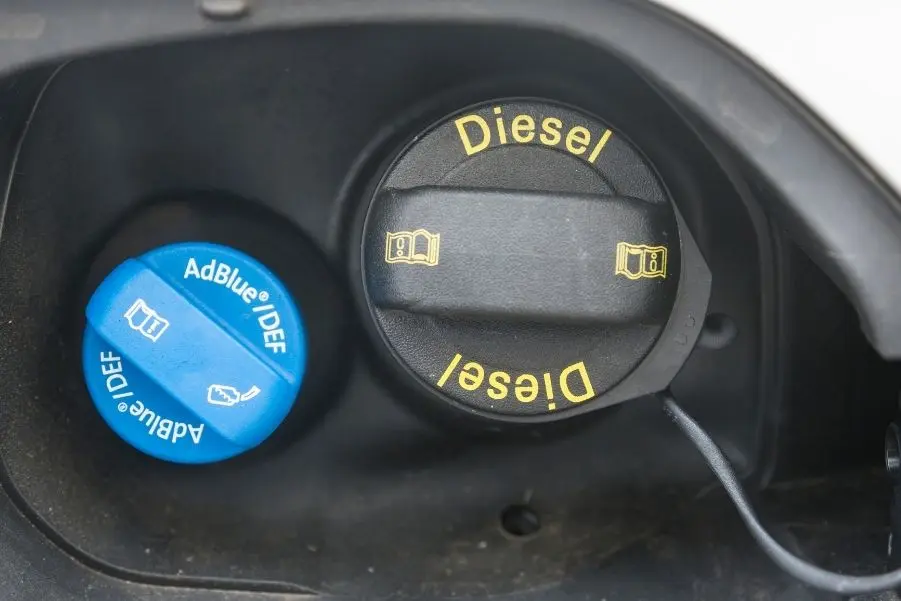Picture this – you’re driving your diesel vehicle, confident in its performance and reliability. But did you know that failing to comply with AdBlue regulations can lead to hefty fines, restricted vehicle performance, or worse, your vehicle being taken off the road?
In the UK, strict Euro 6 Emission Standards are in place, and ignorance is common when it comes to these regulations.
Imagine the frustration and potential financial strain of being penalized for non-compliance. Your vehicle’s performance could be significantly reduced, or it might even refuse to start if your AdBlue levels are not adequately maintained. This is more than an inconvenience; it’s a disruption that could affect your daily life and business operations.
This comprehensive AdBlue guide is your go-to resource for everything. From understanding the Euro 6 Emission Standards to mastering the dos and don’ts of AdBlue usage, we’ve got you covered. Equip yourself with the knowledge to ensure your vehicle is always up to par with regulations, thus avoiding unwanted penalties and ensuring a smoother, more environmentally friendly driving experience.
Let’s dive into the world of AdBlue and make sure you’re fully informed and compliant.
Euro 6 Emission Standards
First up, let’s talk about Euro 6 Emission Standards, the backbone of AdBlue regulations. These standards, in place since 2014, have significantly reduced NOx emissions from vehicles.
All diesel vehicles made after 2015 must be equipped with SCR (Selective Catalytic Reduction) systems and a NOx adsorber, which are essential for meeting these standards.
The introduction of these standards has amplified the use of AdBlue in the UK, underlining its importance in achieving cleaner air and less environmental impact.
AdBlue Usage and Refilling
Now, onto the practical side of things: using and refilling AdBlue. Vehicles with SCR systems have a separate AdBlue tank, and keeping this topped up is crucial.
The vehicle’s computer will alert you when it’s time for a refill, which is dependent on factors like fuel consumption, driving conditions, and engine efficiency. Typically, a car can travel thousands of miles before needing a refill, and it’s a myth that AdBlue burns extra fuel.
Your fuel usage remains the same when using AdBlue.
Availability and Infrastructure
AdBlue’s growing importance means it’s now widely available across the UK. You can find it at petrol stations, automotive shops, and online retailers. For fleet managers and commercial vehicle operators, it’s crucial to ensure easy access to AdBlue to maintain compliance and keep vehicles running.
Penalties for Non-Compliance
The UK is serious about emissions regulations. Non-compliance, including improper AdBlue usage, can lead to fines, restrictions, or even vehicle removal from the road. It’s therefore essential to stay informed and use AdBlue correctly to avoid these consequences.
AdBlue Guide: The Do’s and Don’ts
When it comes to handling AdBlue, there are some important do’s and don’ts. Always use gloves when refilling, avoid contamination, and never add AdBlue directly into the fuel tank. It’s also crucial to purchase AdBlue from a registered licensee of the VDA.
Future of AdBlue
While AdBlue might not have a long-term future beyond 2050, its demand is expected to surge this decade. So, it’s here to stay for a while, and understanding its usage and storage is key.
Storage and Legal Requirements
AdBlue, a high-purity urea and deionized water solution, should be stored between 0 to 30°C and away from direct sunlight. It can freeze at temperatures as low as -11°C but can be reused once thawed. Proper storage is crucial to prevent contamination and ensure effectiveness.
Final Thoughts
As the UK continues to prioritise environmental conservation, understanding the role and regulations of AdBlue is crucial for diesel vehicle owners and operators.
By staying informed and compliant, we can collectively contribute to a cleaner, more sustainable automotive future. Stay tuned for more updates and insights on AdBlue and related topics.


